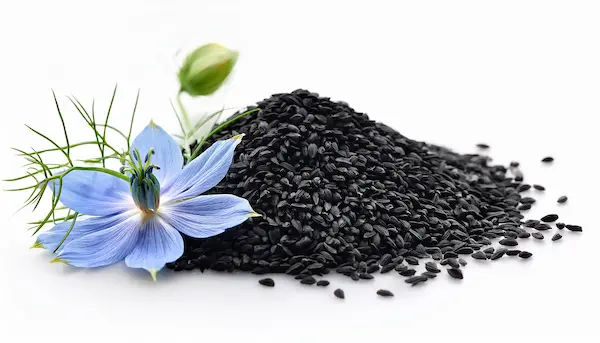Guide to 5 Benefits Of Probiotics You Should Be Aware Of
Explore the top 5 benefits of probiotics, including improved digestion, stronger immunity, and better gut health. Learn why adding them to your diet matters.

Written by Dr. Rohinipriyanka Pondugula
Reviewed by Dr. Md Yusuf Shareef MBBS
Last updated on 17th Dec, 2025

You've probably heard the term "probiotics" buzzing around the health and wellness world, plastered on yogurt labels and supplement bottles. But beyond the marketing, what are the real, evidence-based benefits of these friendly bacteria, and why should you be aware of them? Your gut is home to trillions of microorganisms that play a crucial role in far more than just digestion, they influence your immune system, heart health, mental well-being, and more. This article will cut through the noise and guide you through the five most significant probiotic benefits you should be aware of, backed by science. We'll explore how these microscopic allies work, where to find them, and how to harness their power for your overall health. Get ready to discover why nurturing your gut is one of the best investments you can make in your long-term wellness.
What Exactly Are Probiotics and How Do They Work?
Probiotics are live microorganisms, often called "good" or "friendly" bacteria, that provide health benefits when consumed in adequate amounts. Think of them as tiny tenants that move into your gut neighborhood and help keep the peace. They work by balancing your gut microbiome, the complex community of bacteria in your digestive tract. When this balance is disrupted by poor diet, stress, or antibiotics, "bad" bacteria can thrive, leading to health issues. Probiotics help restore order by crowding out harmful bacteria, strengthening the gut lining, and producing beneficial substances like short-chain fatty acids.
A prime example of this is the way specific strains like Lactobacillus and Bifidobacterium help break down food and enhance nutrient absorption. For instance, they produce lactase, the enzyme needed to digest lactose in dairy, which can help individuals with lactose intolerance. Understanding the difference between probiotic and prebiotic is also key; while probiotics are the live bacteria, prebiotics (found in foods like garlic, onions, and bananas) are the fibrous food that these bacteria eat to thrive.
The Gut Microbiome: Your Internal Ecosystem
Your gut microbiome is a vast, diverse ecosystem within your intestines. A healthy microbiome is a diverse one, with a wide variety of bacterial species. This diversity is crucial for resilience and function. Probiotics contribute to this diversity, essentially acting as reinforcements for your internal microbial army.
Consult a Top Specialist
Benefit 1: Supercharge Your Digestive Health
This is the most well-known and researched of all probiotic benefits. A healthy gut flora is fundamental to smooth digestion. Probiotics are proven to be effective in managing various digestive disorders. For example, they are remarkably effective against diarrhea, particularly antibiotic-associated diarrhea (AAD). A meta-analysis of 82 studies found that taking probiotics reduced the risk of AAD by 42%.
Furthermore, for those suffering from Irritable Bowel Syndrome (IBS), probiotics can be a game-changer. Strains like Bifidobacterium infantis have been shown to significantly reduce bloating, gas, and abdominal pain while improving bowel movement frequency and consistency. They achieve this by reducing gut inflammation and regulating muscle contractions in the intestine. If you struggle with persistent bloating and IBS symptoms, a targeted probiotic regimen, discussed with a healthcare professional, could offer substantial relief.
Benefit 2: Give Your Immune System a Major Boost
Did you know that nearly 70% of your immune system resides in your gut? This isn't a coincidence. The gut-associated lymphoid tissue (GALT) is your body's first line of defense against pathogens. Probiotics play a critical role in immune support by interacting with and "training" these immune cells.
They enhance your body's production of natural antibodies and immune cells like T-lymphocytes and Natural Killer (NK) cells. Studies have shown that regular consumption of probiotics can lead to a reduction in the duration and severity of common respiratory infections, like the common cold. For example, a study published in the British Journal of Nutrition found that college students who drank a probiotic-rich beverage experienced 55% fewer days of cold symptoms and missed 34% fewer school days than the control group. By maintaining a robust gut barrier, probiotics also prevent harmful pathogens from entering your bloodstream, acting as a constant shield for your immune response.
Benefit 3: The Surprising Gut-Brain Connection
Perhaps the most fascinating modern discovery is the gut-brain axis—a bidirectional communication network linking your enteric nervous system (the "second brain" in your gut) with your central nervous system. Probiotics, often called "psychobiotics" in this context, can positively influence this connection.
The bacteria in your gut produce a plethora of neurochemicals that the brain uses to regulate mental processes. For instance, about 90% of your body's serotonin, a key neurotransmitter that stabilizes mood, is produced in the gut. Research suggests that probiotics can increase serotonin production and reduce stress hormones like cortisol. A review in Gastroenterology noted that participants taking probiotic supplements showed significant improvements in symptoms of anxiety, depression, and perceived stress compared to those taking a placebo. While probiotics are not a replacement for therapy or medication, they are a powerful complementary tool for supporting mental health.
Conclusion
The evidence is clear: the benefits of nurturing your gut health with probiotics extend far beyond comfortable digestion. From acting as a stalwart guardian of your immune system to influencing your mental well-being through the gut-brain axis, these microscopic powerhouses play an integral role in your overall health. While incorporating fermented foods like yogurt, kefir, and sauerkraut is an excellent dietary strategy, a high-quality supplement can also be effective, especially when targeting specific concerns. Remember, consistency is key. Making probiotics a regular part of your wellness routine is a proactive step toward long-term vitality. If you have specific health conditions or are considering supplements, it's always wise to consult a doctor online with Apollo24|7 to find the best and safest approach for your unique needs. Start listening to your gut, it has a lot to say about your health.
Frequently Asked Questions (FAQs)
Below are a few FAQs,
1. What is the best probiotic for gut health?
A. There is no single "best" probiotic, as effectiveness depends on the strain and the individual's needs. For general digestive health, look for a broad-spectrum supplement containing strains from the Lactobacillus and Bifidobacterium families. For specific issues like IBS, strains like B. infantis are often recommended.
2. Can I get enough probiotics from food alone?
A. Yes, it is possible. Regularly consuming a variety of fermented foods like yogurt, kefir, kimchi, sauerkraut, and kombucha can provide a healthy dose of probiotics. However, supplements offer a more concentrated and specific strain count, which can be beneficial for addressing particular health concerns.
3. Are there any side effects of taking probiotics?
A. Most people tolerate probiotics well. Some may experience mild side effects when first starting, such as gas, bloating, or changes in bowel habits, as your gut microbiome adjusts. These usually subside within a few days. Those with compromised immune systems or serious illnesses should consult a doctor before use.
4. How long does it take for probiotics to work?
A. This varies based on the individual and the reason for taking them. Some people notice improvements in digestion within a few days. For other benefits, like immune or mental health support, it may take several weeks or even months of consistent use to see noticeable effects.
5. When is the best time to take probiotics?
A. The best time is generally on an empty stomach or just before a meal, as this may help the bacteria survive stomach acid and reach the intestines. However, the most important factor is consistency, taking them at the same time every day.
Consult a Top Specialist
Consult a Top Specialist

Dr. Md Yusuf Shareef
General Practitioner
8 Years • MBBS
Hyderabad
Apollo 24|7 Clinic, Hyderabad

Dr. M L Ezhilarasan
General Practitioner
6 Years • MBBS
Visakhapatnam
Apollo 24|7 Clinic - Andhra Pradesh, Visakhapatnam

Dr. Chethan T L
General Physician/ Internal Medicine Specialist
5 Years • MBBS, MD, DNB (General Medicine)
Bengaluru
Apollo Medical Center, Marathahalli, Bengaluru

Dr. Rajib Ghose
General Physician/ Internal Medicine Specialist
25 Years • MBBS
East Midnapore
VIVEKANANDA SEBA SADAN, East Midnapore

Dr. Afreen Banu Khan
General Physician/ Internal Medicine Specialist
12 Years • MBBS, DDM (Diab). FCC (Cardio)
Chennai
Apollo Speciality Hospitals OMR, Chennai




